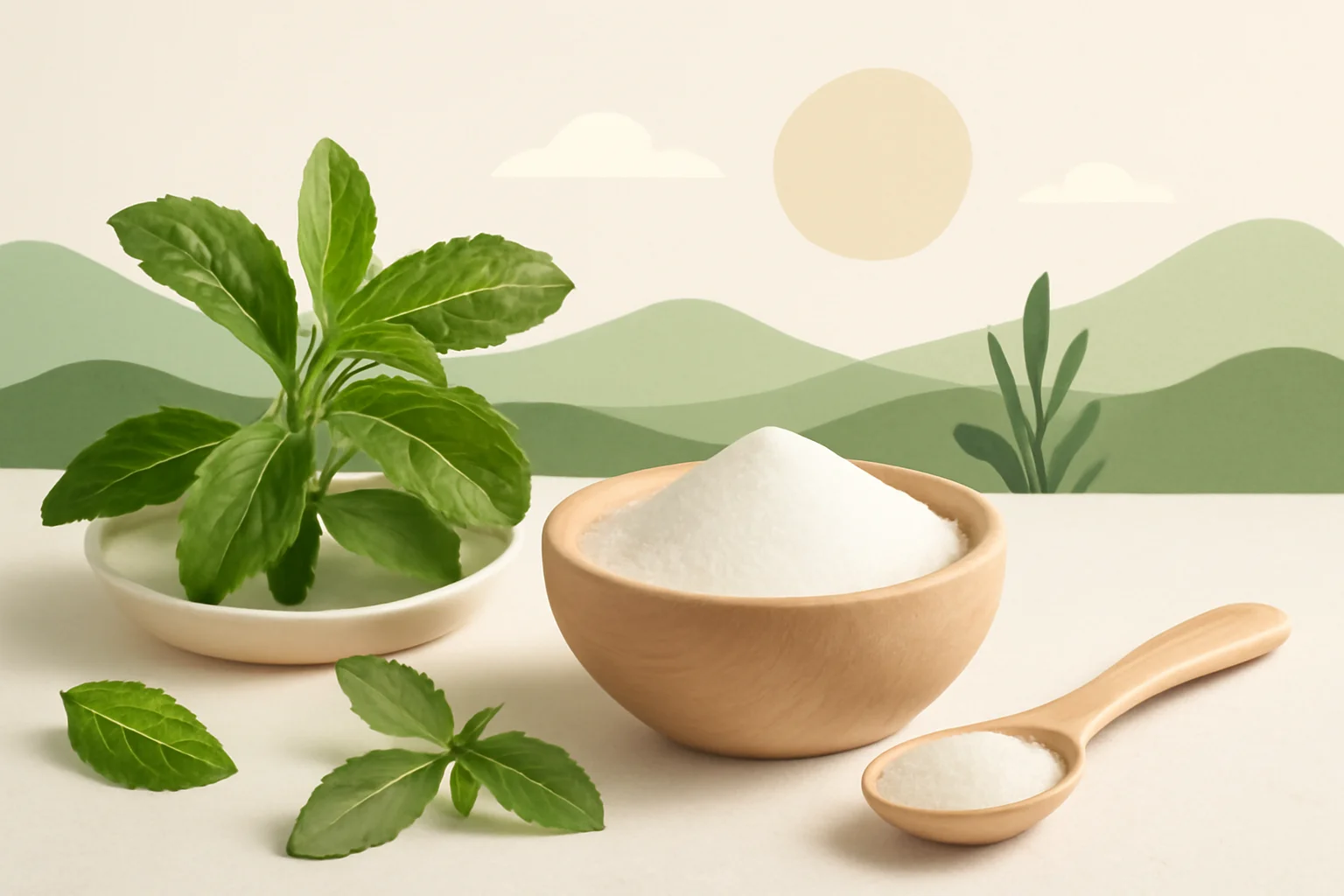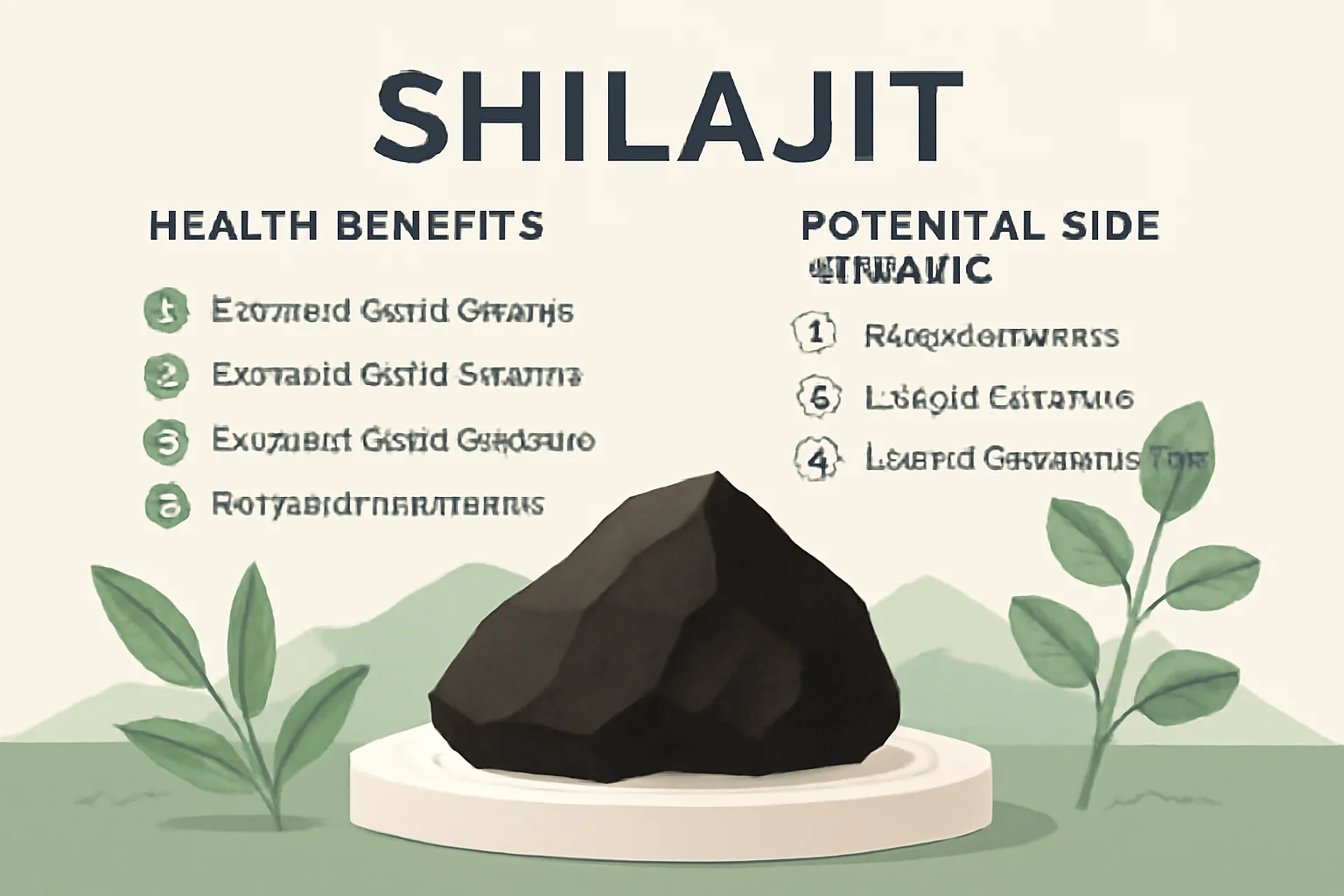
Stevia or erythritol: Which is the better sweetener choice?
A modern nutrition increasingly incorporates natural sweeteners, which provide an alternative to traditional sugar. With the growing awareness of health and the demand for healthier lifestyles, more people are seeking options that not only offer sweet flavors but also help reduce calorie intake. Stevia and erythritol have become particularly popular as two natural sweeteners that are not only low in calories but also come with various benefits.
Stevia: The Natural Sweetener Wonder
Stevia is a plant-based sweetener derived from the leaves of the Stevia rebaudiana plant. Its sweet taste comes from compounds called steviol glycosides, which are 50-300 times sweeter than sugar. The popularity of stevia has significantly increased in recent years, and many choose it because its calorie content is virtually zero. Additionally, stevia does not raise blood sugar levels, which can be particularly appealing to diabetics.
Among the advantages of stevia is that it comes from a natural source, making many consider it safer than artificial sweeteners. Moreover, the antioxidants found in stevia leaves may contribute to health maintenance and are known for their anti-inflammatory effects.
It is important to mention that the taste of stevia may differ from that of sugar for some people. Some may notice a bitter aftertaste that can occur when using stevia. Therefore, it is advisable to start with small amounts and experiment with ratios to find the flavor that suits one best.
Stevia is available in various forms, including powder, drops, and liquid versions. It can also be used in cooking and baking, but it is important to consider that stevia does not always behave the same way as sugar. For example, stevia is often combined with other sweeteners to enhance its flavor and texture.
Erythritol: The Benefits of Sugar Alcohol
Erythritol is a sugar alcohol that naturally occurs in many fruits, such as grapes and pears. Sugar alcohols like erythritol are low-calorie sweeteners that provide about 60-70% of the sweetness of sugar while containing significantly fewer calories. Erythritol has become particularly popular among followers of low-carb diets, as it does not raise blood sugar levels and does not cause tooth decay.
Another advantage of erythritol is that it is quickly absorbed by the body, with a large portion being excreted unchanged in urine. This means that fewer unpleasant side effects occur in the gastrointestinal tract compared to other sugar alcohols. Since erythritol is not fermented, it is less likely to cause bloating or abdominal discomfort.
Erythritol works well in baking and cooking; however, since it does not caramelize, it cannot fully replace sugar in all recipes. It is worth experimenting with quantities to achieve the desired taste and texture.
Although erythritol is generally considered safe, excessive consumption may lead to gastrointestinal discomfort in some individuals. Therefore, it is advisable to use it in moderation.
Considerations for Choosing: Stevia or Erythritol?
When choosing between stevia and erythritol, several factors should be considered. The first and most important factor is taste. Since stevia and erythritol have different flavors, it is worthwhile to try both to determine which one better meets individual preferences.
The next consideration is calorie content and the effect on blood sugar levels. Both sweeteners are low in calories and do not raise blood sugar levels, but erythritol may have slightly higher calorie counts than stevia.
It is also important to consider the methods of use. If cooking or baking is intended, it is essential to examine how the chosen sweetener reacts to temperature. While stevia can be used well in various dishes, erythritol may also be suitable in terms of texture and consistency along with its sweetness.
Finally, personal health status also plays a role in the choice. For diabetics, stevia may be the better option, while those allergic to stevia may prefer erythritol. Both sweeteners are considered safe, but it is best to consult a doctor or nutritionist before incorporating them into one’s diet long-term.
**Warning:** This article does not constitute medical advice. Always consult your doctor regarding health issues.

